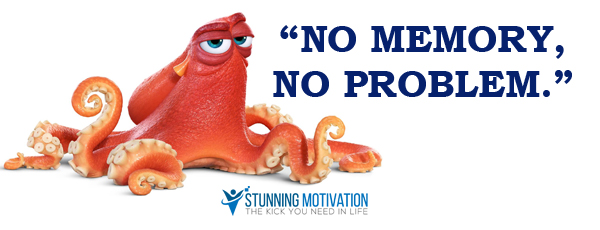

How does our memory work? How are we able to remember events that happened many years ago when others vanish in an instant?
These questions have been of concern to researchers since Antiquity. For example, to Plato and Aristotle (4th Century BC), memory was akin to a “wax tablet” where traces of the past would be engraved more or less durably. Until the late 19th century, works on memory remained on a subjective register. In 1885, research on memory made a radical change thanks to Herman Ebbinghaus, a German psychologist, who pioneered the experimental and objective study of memory.
Memory and Emotions (2003) by James McGaugh is part of an objective comprehension of memory too. James McGaugh is a distinguished neuroscientist, a research professor of neurobiology and behaviour and is also the founding director of the Center for the Neurobiology of Learning and Memory at the University of California. In the beginning of his career, he investigated the brain processes underlying the effects of drugs and stress hormones on memory storage. Lately, he has taken an interest in human memory, and particularly in Highly Superior Autobiographical Memory: hypermnesia.
Intended for a general public readership, Memory and Emotions (2003) aims to provide a pedagogical overview of recent developments in the field of research on memory
We will focus on the fourth chapter of McGaugh’s book entitled “Unforgettable”. In the first place, we’ll sum up McGaugh’s work then we will discuss the objectives and ideas the author tried to develop through the text.
James McGaugh starts with a fact: many people aren’t satisfied with their memory performances and want to improve them in order to feel better. He notes that a bunch of techniques exists, such as reading books or using herbs -which may certainly help to train memory- but never demonstrated a significant efficiency to improve it until today. Now let’s imagine our memory could really be limitless. What would happen? Through three cases studies, McCaugh tries to illustrate a life with unlimited memory and questions the link between hypermnesia and happiness.
Firstly, the author uses the fantasy short story “Funes the Memorious” written by Jorge Luis Borges (1942) to demonstrate both the power and despair coming with hypermnesia. In this fiction we meet Funes, a young man with hypermnesia, forced to lay paralysed in bed after a horse accident. To occupy his days, he reads books about marvellous kings with incredible memory that made them extremely powerful: “Cyrus: kings of the Persians, could call every soldier in his armies by name”. In his bed, Funes feels more powerless than anything else. Remembering every details of the outside world, enable to forget what he had seen or imagined and almost incapable of generalization. This first case shows the fantasy aspect of infinite memory.
To continue, McGaugh describes the real life story of “S” from the Russi an neuropsychologist A.R Luria’s book “A little book about a vast memory: the mind of a mnemonist”(1968). “S” is a failed musician and journalist who became a mnemonist. Since young age, “S” had extraordinary cognitive capacities. Later, his “too perfect” memory became a problem to him because he had difficulties to ignore past events “the capacity and durability of his memory traces were unlimited”. Tested by Luria in a task of span memory, “S” could retain and recall several columns of number in order, reverse order and even diagonals. He explained that he used mnemonic aids, such as “synaesthesia”: the capacity to associate sounds, colours, tastes to an object. As Funes, “S” explained that his life was difficult: constantly feeling like his reality and imagination were tangling.
Finally, McGaugh presents the real case of V.P, a mnemonist discovered by Earl Hunt and Tom Love at the University of Washington. As in S’s story, V.P had exceptional memory capabilities and was able at 5 years old to memorize “the street map of his city as well as the railway and bus timetables”. As an adult, he became a chess expert, able to play up to seven simultaneous chess matches. V.P’s digit span was almost 3 times better than the one of undergraduate subjects (21.5 vs less than 8). V.P used mnemonics aids too, however it did not consist on imagery: regarding a combination of numbers, he associated them as a date and remembered what he did on that particular day when he had to recall them.
Through “Unforgettable”, James McGaugh tried to demystify some misconceptions about memory while keeping a certain part of magic. McGaugh showed that cases of incredible memory exist in fantasies as a powerful and respectful gift and as a more or less helpful capacity in real life.
One of the most positive thing about Memory and Emotion and “Unforgettable” is that his author never forgets his readership. From the first sentence to the last, McGaugh includes his readership. At the beginning of the chapter, McGaugh starts by giving few examples of products which are sold in great quantity in order to improve memory “packages of herbs with labels promising memory-boosting” despite any evidence of efficiency. The author makes his reader questions himself implicitly then: Have I ever been dissatisfied by my memory’s capacities too? Have I ever tried to increase it? Without judging, McGaugh continues his reflexion and tries to answer the ultimate question:[if it was possible] should we want such memories?
McGaugh’s writing style is clear, his arguments are effective, easy to remember and sometimes humorous. Through fictional and real stories, he presents the “positive” aspects of hypermnesia: “never took notes but could repeat assignments precisely word for word” and insists on its negatives repercussions on daily life ”if we remembered everything , we should on most occasions be as ill off as if we remembered nothing”.
McGaugh argues that a memorisation of every details with precision most of the time is useless and can be very prejudicial in daily life because it limits the capacity of thinking: “to think is to forget differences, generalize, make abstractions”. In addition, it seems to affect people in their adaptation to reality: for example, in S’s case, imagination and reality are tangling at every moment.
In a society where being efficient is becoming a “must”, hypermnesia can be seen as the ultimate phantasm. Some TV series interrogates the advantages and limits of an unlimited memory too. For example, in an episode of Black Mirror (directed by Brian Welsh) The Entire History of You almost all the population has access to a memory implant placed behind their ear that records everything they do, hear or see. Consequently, that implant allows them to review again and again past events in details for better or for worse. This episode warns off the anxiety, obsession and drifts that could come with such technology.
To sum up, by presenting positive and negative facets of hypermnesia, McGaugh seems encourage his readership to be conscious of the chance to forget and reconsider the unconditional desire to have an excellent memory.
In conclusion, “Unforgettable” was interesting to read, informative and could be completed by reading more precisely V.P’s or S’s story. We would have liked to learn more about how people with hypermnesia communicates with the world: how do they manage in a conversation? Are they more intelligent? Do they test better in an IQ evaluation? Are they more protected against Alzheimer’s disease? After all, Memory is a wide subject which hasn’t delivered all his secrets yet and which will certainly always let some mysteries to human.
Bibliography :
McGaugh, J. L. (2003). Memory and emotion: the making of lasting memories. New York: Columbia University Press.
Words we have learned :
- Digit span task = tâche d’empan de chiffres
- mnemonist = expert dans l’utilisation de sa mémoire
- synaesthesia = synesthésie
- to warn off = mettre en garde
- to tangle = enchevêtrer
Hélène LE CORRE, Solenne BOCHET, Jérôme LE GUEN – M2 PPCECC